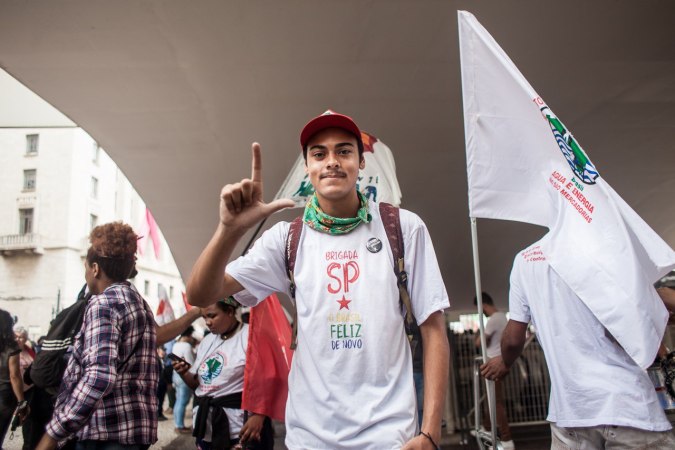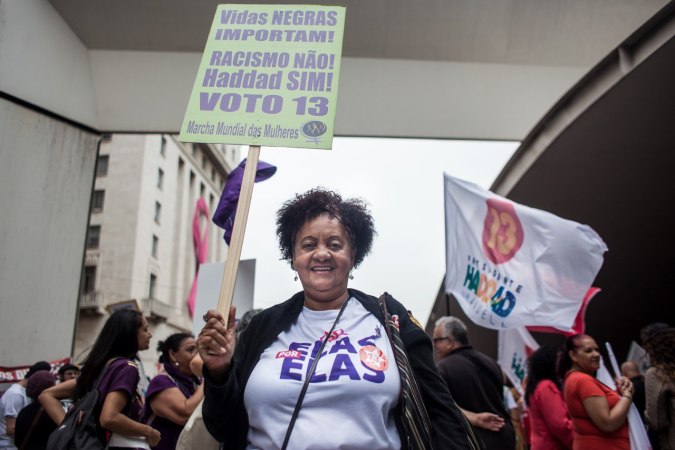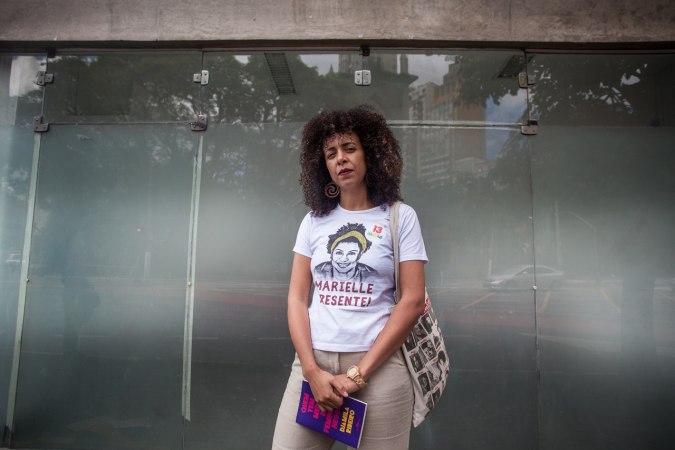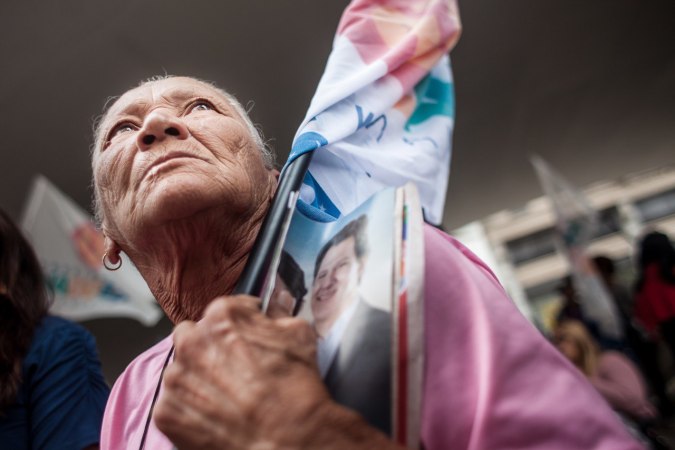Several months ago, when a not-so-well-known conservative congressman launched his candidacy for Brazil’s presidency, many analysts didn’t take him seriously. After all, Jair Bolsonaro was impolite, rude, racist, and deeply aggressive toward women and Afro-Brazilians. It didn’t seem he had a chance, but on October 28, the morally grotesque character defeated Fernando Haddad. He received 55 percent of the vote and will become the next president of the biggest country in South America, making Bolsonaro the most powerful political figure below the Equator.
From the beginning, Bolsonaro made it clear that his vision for Brazil didn’t include everyone. And while he had plenty of critics, his hateful rhetoric never once waned. He riddled his speeches with violent phrases, and his words became bolder as he capitalized on the turmoil enveloping Brazil. It’s hard to concisely explain the factors that led to his victory; however, political and economic interests, deep religious tendencies, the media war against former president Luiz Inácio Lula da Silva (who is currently serving a 12-year sentence for corruption) and his party, recession and the inflation that has plagued the country since 2014 all led to a win for a man who once said that “having a gay is due to a lack of” beatings.
The election didn’t just embolden Bolsonaro, it also spread to his base, who reportedly become increasingly violent as the far-right candidate moved ahead in the polls. Before the first round of elections, there were reports of attacks on the LGBTQ community and Haddad’s Partido Dos Trabalhadores. And after his victory on October 28, the media reported several hate crimes. It’s a scary time for many as Bolsonaro threatens to curtail the rights of women, people of color, the LGBTQ community, and more.
This week, we headed to the streets of Sao Paolo to speak with some of the people who have been the targets of of Bolsonaro’s hateful speech. While they come from different walks of life, they all agree that there’s one way to move forward: form a front of political and social forces to fight Bolsonaro’s rhetoric and potential policies.

Victor de la Saria, 22
I have relatives who voted for Bolsonaro. Fake news about Partido Dos Trabalhadores’ candidates and lies about their government proposals were very important in his campaign. Therefore, I think we should show Bolsonaro’s supporters how corrupt he and his party is. But, we must talk with true information and patience. Bolsonaro is surrounded by corruption, and he does not have a single idea to help the Brazilian population. We have to approach these issues with patience. In my case, I had to sit for 40 minutes with some people who were backing him.

Edina Suares, 55
Women are majority in this country, but not the majority with proper political formation. Most women here don’t have a notion of what can happen here with this guy in government. Many think that this campaign is like a derby, buy this is barbarity. Women with a bit of conscience are ready to go to the streets. We are ready to be the resistance.
The main thing here will be talking. Talking about the right women will lose with Bolsonaro in power. Minimum wage, for example, that is the force that moves the economy in this country. Rich people don’t support the economy of Brazil. They send their children to live abroad and that’s it. Sadly, there is a big mass of poor people without political beliefs that see Bolsonaro as a savior for the country, someone who could end violence. But nobody ends violence with more violence. That’s the message we have to spread.

Priscila Neto, 30
During the campaign, I took to the streets to distribute fliers to pedestrians in order to inform them what it meant to vote for Bolsonaro. I also worked in social media and chatted with people on parks and public spaces. And I will keep participating in these kind of initiatives because Brazilians are exposed to [a lot of partial news] from the traditional press. Man people here fell into feelings of distrust toward political institutions. Media generates violence toward them.
Due to this and to Bolsonaro’s fascist speech, there have been so many aggressive encounters with his backers. I don’t think Brazilian society is fascist, but some part of it definitely is, and they found a positive context for the contagion of their message now. Women and all social movements are vulnerable, and I think that in order to make resistance prevail, we have to form a single political front to fight against violence.

María Ferreira, 62
It might rain or the sun might be boiling, but we are going to be on the streets. Do you understand that? Bolsonaro won, but he will fall. He will fall if he thinks he will take the rights out of people’s hands. God’s on the people’s side here. I currently don’t have the income necessary to rent a place, and I’m staying in a land occupied by the Movimento dos Trabalhadores Sem Teto. I’m 62 years old, and I have to struggle for my rights and my life over and over again. So here I am – ready to put up a fight one more time.




